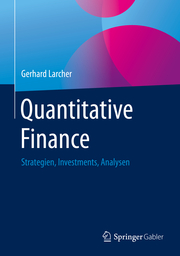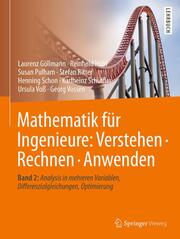Scalar and Vector Risk in the General Framework of Portfolio Theory (E-Book, PDF)
Scalar and Vector Risk in the General Framework of Portfolio Theory
eBook - A Convex Analysis Approach, CMS/CAIMS Books in Mathematics
Bibliographische Informationen
Format: Digitale Rechteverwaltung: Digitales Wasserzeichen
Beschreibung
Thisbook is the culmination of the authors industry-academic collaboration in the past several years. The investigation is largely motivated by bank balance sheet management problems. The main difference between a bank balance sheet management problem and a typical portfolio optimization problem is that the former involves multiple risks. The related theoretical investigation leads to a significant extension of the scope of portfolio theories.
The book combines practitioners perspectives and mathematical rigor. For example, to guide the bank managers to trade off different Pareto efficient points, the topological structure of the Pareto efficient set is carefully analyzed. Moreover, on top of computing solutions, the authors focus the investigation on the qualitative properties of those solutions and their financial meanings. These relations, such as the role of duality, are most useful in helping bank managers to communicate their decisions to the different stakeholders. Finally, bank balance sheet management problems of varying levels of complexity are discussed to illustrate how to apply the central mathematical results. Although the primary motivation and application examples in this book are focused in the area of bank balance sheet management problems, the range of applications of the general portfolio theory is much wider. As a matter of fact, most financial problems involve multiple types of risks. Thus, the book is a good reference for financial practitioners in general and students who are interested in financial applications. This book can also serve as a nice example of a case study for applied mathematicians who are interested in engaging in industry-academic collaboration.
Autorenportrait
Inhalt
E-Book Informationen
„eBooks“ sind digitale Bücher. Um eBooks lesen zu können, wird entweder eine spezielle Software für Computer, Tablets und Smartphones oder ein eBook-Reader benötigt. Da es eBooks in unterschieldichen Formaten gibt, gilt es, folgendes zu beachten.
Von uns werden digitale Bücher in drei Formaten ausgeliefert. Die Formate sind EPUB mit DRM (Digital Rights Management), EPUB ohne DRM und PDF. Bei den Formaten PDF und EPUB ohne DRM müssen Sie lediglich prüfen, ob Ihr eBook-Reader kompatibel ist. Wenn ein Format mit DRM genutzt wird, besteht zusätzlich die Notwendigkeit, dass Sie einen kostenlosen Adobe® Digital Editions Account besitzen. Wenn Sie ein eBook, das Adobe® Digital Editions benötigt, herunterladen, erhalten Sie eine ASCM-Datei, die zu Digital Editions hinzugefügt und mit Ihrem Account verknüpft werden muss. Einige eBook-Reader (zum Beispiel PocketBook Touch) unterstützen auch das direkte Eingeben der Login-Daten des Adobe Accounts – somit können diese ASCM-Dateien direkt auf das betreffende Gerät kopiert werden.
Da eBooks nur für eine begrenzte Zeit – in der Regel 6 Monate – herunterladbar sind, sollten Sie stets eine Sicherheitskopie auf einem Dauerspeicher (Festplatte, USB-Stick oder CD) anlegen. Außerdem ist die Anzahl der Downloads auf maximal 5 begrenzt.
Weitere Artikel aus der Kategorie "Mathematik/Sonstiges"
Neuerscheinung

Lieferbar innerhalb 24 Stunden

Lieferbar innerhalb ca. einer Woche

Lieferbar innerhalb ca. einer Woche






